Photographs: Reuters Bikash Mohapatra
There's something about the Australians, and the way they play their cricket.
And when the stakes are high, they take their level a few notches above the usual -- the Indian Premier League being a case in point.
That probably explains why they have been so successful in the tournament.
The IPL was launched with the objective of unearthing Indian talent and giving the exiting ones an opportunity to play with the best of the world.
And before you presume we are being unnecessarily critical, we admit a few Indians did definitely come up the pecking order.
While the likes of Yusuf Pathan, Ravindra Jadeja, Venugopal Rao and Shikar Dhawan raised their heads in the inaugural edition, talents like Manish Pandey, Pragyan Ojha and Shadab Jakati came to the fore in the just-concluded edition.
But, then, how many of them (from the first list, inaugural edition) were able to repeat their efforts the second time around?
And, why is it that a team led by an Australian has gone on to become champion in these two years, despite so many Indian captains being in the fray?
Before you cry foul let's just glance into the titles that matter at the end of the IPL.
While on the one hand we have two Australians -- Shane Warne and Adam Gilchrist -- captaining Rajasthan Royals and Deccan Chargers to glory, the coaches of the said teams were also from Down Under.
The player of the tournament in both the editions was an Aussie, and so was the holder of the Orange cap (best batsman).
It is only the Purple cap that eluded the Australians -- Sohail Tanvir (Rajasthan) won it in 2008 and R P Singh (Hyderabad) this year.
But, then, it can be argued that Australian bowlers did not bowl as much in the tournament vis-a-vis bowlers from other countries.
While Warne was extremely successful with 33 wickets (19 + 14) spanning two editions, the other bowlers did not play as much.
So, while the likes of Brett Lee had to go on national duty after a good start last season, in the second year the opportunities were lacking.
Glenn McGrath didn't get to play a single match, Nathan Bracken got injured before the tournamet started and some other Aussie bowlers were busy tackling Pakistan.
But, despite that, Dirk Nannes -- notwithstanding the fact that he will represent the Netherlands in the T20 World Cup -- secured 15 wickets for Delhi.
Besides, there have been other significant contributions from the Aussies.
On the one hand we have Andrew Symonds, with 410 (@ 45.55) spanning two editions, contributing immensely to the Hyderabad cause despite limited appearances, on the other we have Brad Hodge, with 365 runs in 12 matches (@ 40.55) fighting a valiant battle for a down-and-out Kolkata outfit.
If the addition of David Hussey bolstered the Kolkata line-up, Punjab played with rekindled spirit once Brett Lee joined their squad.
For the sake of figures alone, let's point out that out of the eight hundreds scored so far in the tournament, four have come from an Aussie blade.
Before you wonder, this piece is not about eulogizing the Australian achievements but stating facts as they are. And we definitely agree there have been a few Aussies who have failed to shine.
However, if one assesses the performances on a country-wise basis, the achievements of the players from Down Under are far more prominent.
Overall, after two editions, the Indian Premier League is more about an Australian triumph than anything else.
Gilchrist: Led from the front
Image: Adam GilchristPhotographs: Reuters
Credentials: Winning captain (2009), Player of the tournament (2009), fastest fifty... the list is endless.
Immaculate, impeccable, incisive.
Agreed, the words above, more or less, mean the same. But the efforts of this man are of such magnitude that there's a paucity of words when it comes to describing him.
Yes, we are talking about Adam Gilchrist.
The Australian was imppressive in the inaugural season as well, as the sixth highest run scorer with with 436 runs in 14 matches (@ 33.53). And his magnificent 109 not out against the Mumbai Indians probably redefined the word 'assault'.
But it was not enough to prevent his team, the Deccan Chargers, from finishing the tournament with the proverbial wooden spoon, with just two wins in 14 matches.
However, Gilchrist returned, this time as captain, to finish the unfinished business.
He started of on a positive note, winning his first four matches, endured a topsy turvy period in the middle but ended on a perfect note, the captain in him leading his side to a title triumph in the second edition.
Besides, the batsman in him went from strength to strength, notching up 495 runs in 16 matches (ave.30.93), including a tournament record 29 sixes.
His almost single-handedly demolished the till-then high-flying Delhi Daredevils in the semi-finals with a superlative 35-ball 85, his 17-ball half-century [during the course of the knock] being the fastest fifty registered in the comeptition.
His brilliant captaincy, batting exploits and 18 dismissals behind the stumps -- 10 catches and 8 stumpings --- ensured he was adjudged 'Player of the Tournament'.
After two editions, Gilchrist aggregates 931 runs in 30 innings, including one hundred and six fifties, the most by any batsman in the competition.
And, considering the fact that he is 37, and has retired from international cricket, we have to go back to the three words that we started with.
This 'Lehmann Brother' is recession-proof
Image: Darren LehmannPhotographs: Reuters
Credentials: Winning coach (2009)
When Darren Lehmann took charge of Deccan Chargers last September, the team was in disarray.
Arguably the most high-profile team in the inaugural edition, the Chargers had ended up at the bottom of the table, disappointing not only their fans but also the owners.
The result, in what was widely regarded as the first sacking of the IPL, incumbent coach Robin Singh was shown the door and VVS Laxman removed as captain.
'There was a lot of negative feeling around the team last year,' Lehmann was quoted as saying soon after his appointment.
'We are trying to turn it around and I want to gel the group to become closer and play a better brand of cricket than last season.'
The ever-smiling Australian, a 2004 Wisden Cricketer of the Year, put the team back on track without much ado. And they responded by handing him the trophy.
Thunder from Down Under
Image: Matthew HaydenPhotographs: Reuters
Credentials: Orange Cap (2009)
Till the fag end of the group phase it was not certain which four teams would make it to the last four.
However, there was one certainty. It was pertaining to who would get the Orange cap for most runs in the tournament.
And the certainty was Matthew Hayden.
With 572 runs (ave. 52.00) in 12 games, the Australian broke loose from the chasing pack midway through the tournament.
He was the mainstay of the Chennai Super Kings batting, ensuring they had a good start in almost every game. And when he was dismissed, his team struggled, as was last witnessed in the semi-finals against Bangalore.
Had he played the two matches, which he didn't figure in owing to injury, Shaun Marsh's record (616) in the inaugutral edition would have been history, without doubt.
But if Hayden continues to be as devasting in the next season then we may have to change the previous sentence.
His overall tally of 761 in 16 matches (ave.54.35), including seven fifties, is fourth overall. Only Adam Gilchrist (931), Suresh Raina (855) and Gautam Gambhir (820) ahead of the Australian southpaw.
The best captain Australia never had
Image: Shane WarnePhotographs: Reuters
Credentials: Winning captain/coach (2008)
When he guided an unfancied Rajasthan Royals to triumph in the inaugural edition, it was the stuff legends are made of.
They said he was the best captain Australia never had!
We say he is the best captain the Indian Premier League will ever have!
Coming to South Africa in a bid to defend his title, Warne had a severely weakened line-up, sans Kamran Akmal, Shane Watson and Sohail Tanvir.
And after a few matches, the captain realised his batsmen, including the mainstay (Graeme Smith) weren't upto the mark.
However, it was his captaincy that ensured that despite the limited resources, they finished the tournament at a credible sixth place and not among the bottom two which seemed a possibilty.
And if as a captain he led from the front, as a bowler, he was again the best bet Rajasthan Royals had to offer.
Warne had finished with 19 wickets in the inaugural edition. He had 14 scalps to his credit in the second.
Unless he does a rethink, the Australian will not play for Rajasthan again.
And Rajasthan Royals will never be able to replace Shane Warne.
In the name of the father
Image: Shaun MarshPhotographs: Reuters
Credentials: Orange Cap (2008)
Geoff Marsh's son was taken out from Western Australia at the last minute; it turned out to be a hidden ace in Punjab's sleeve in the inaugural edition.
His 616 runs in 11 matches (@ 68.44) helped Kings XI go all the way to the semi-finals.
Punjab's dependence on Shaun Marsh was so much that when he flourished -- his 69-ball 115 against Rajasthan being a case in point -- his side had it easy.
And when he perished -- the semi-final being a case in point -- also perished his side's aspirations.
How much his absence from the second edition affected Punjab can be judged from the fact that they failed to match their showing in the inaugural edition, let alone surpass it.
Simply Shane-sational
Image: Shane WatsonPhotographs: Reuters
Credentials: Player of the tournament (2008)
Shane Watson was, without doubt, the star of the inaugural edition.
It was a breakthrough performance.
He starred with both bat and ball last year, scoring 472 runs @ 47.20 and taking 17 wickets @ 22.52.
No wonder the 27-year-old cricketer was named the competition's best player after he helped Rajasthan Royals clinch the inaugural trophy.
Since his IPL exploits, Watson was in fine form in ODIs, scoring 533 runs @ 53.30 and taking eight wickets @ 16.50 in the run-up to the second edition. There were a few injury worries in between though.
However, with Australia playing Pakistan at the same time, Watson couldn't be a part of Rajasthan Royals.
So, while he succeeded, scoring 271 runs @ 90.33, helping Australia win 3-2, Rajasthan, in his absence, failed to replicate the success that was achieved in his presence.
To make matters worse, when he was eventually available to play for Rajasthan, Cricket Australia intervened asking him to rest ahead of the Twenty20 World Cup in England.

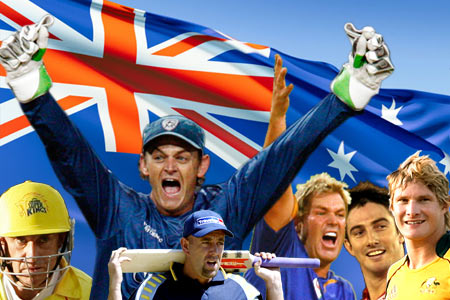
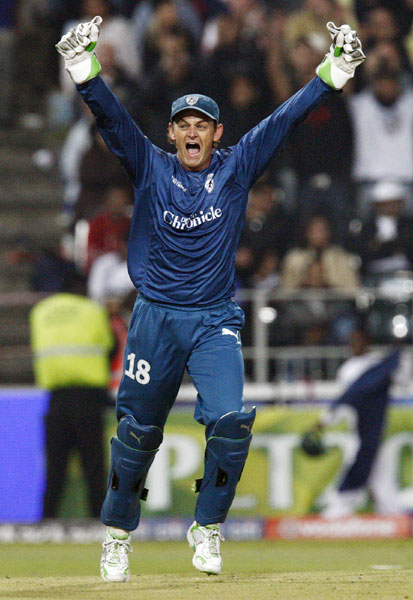
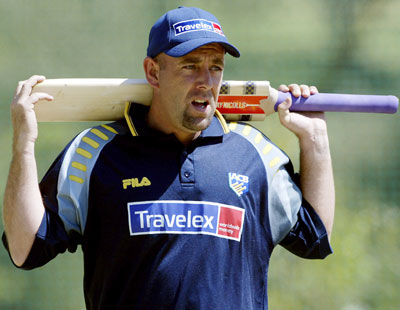
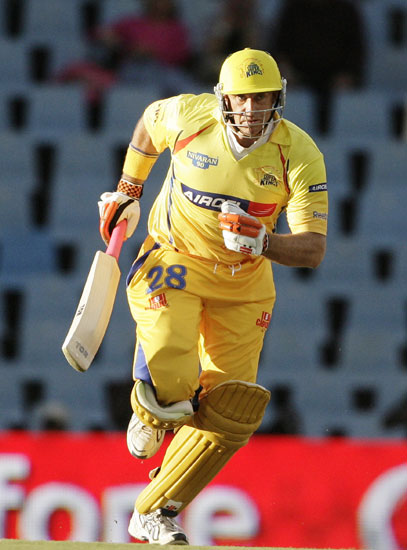
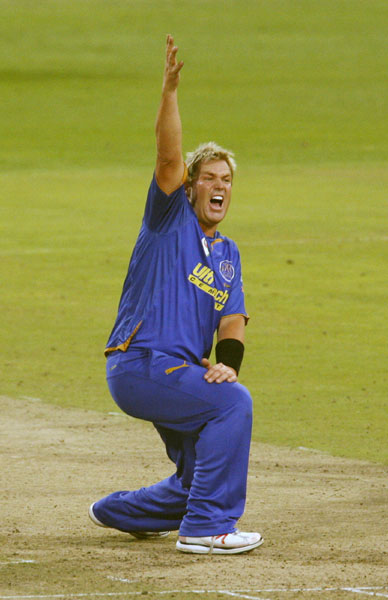
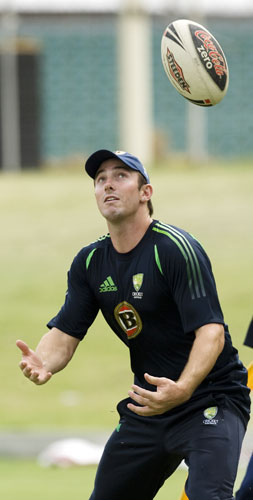
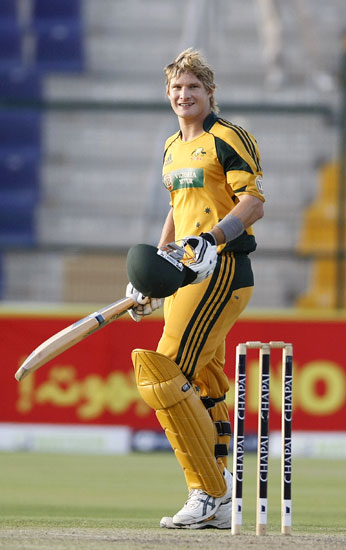
Comment
article